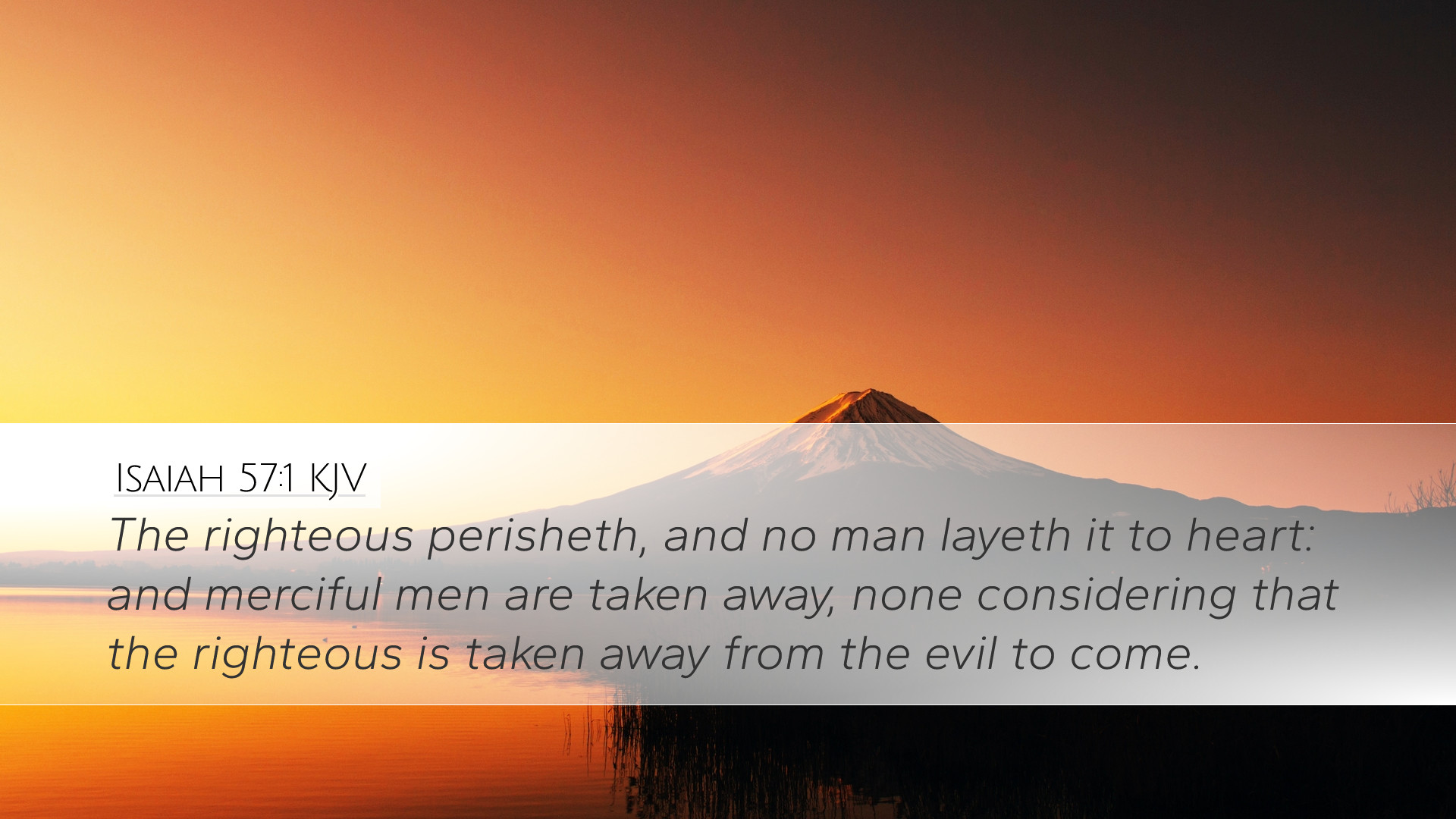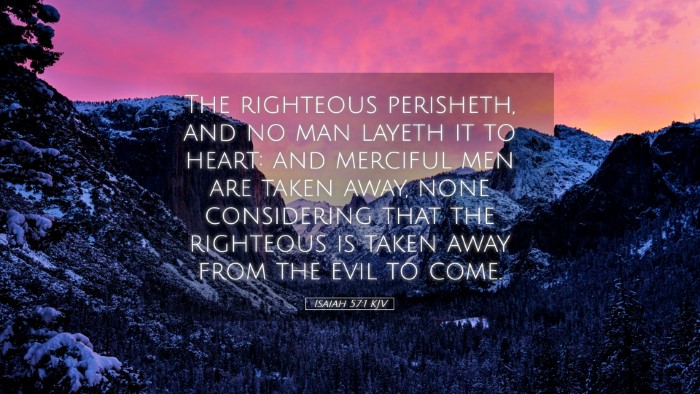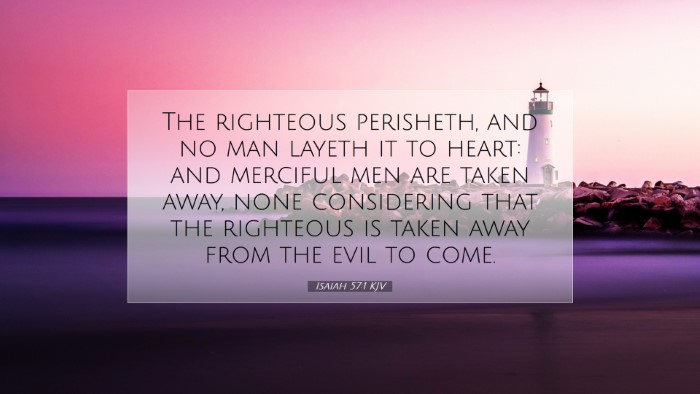Commentary on Isaiah 57:1
Isaiah 57:1 (ESV): "The righteous man perishes, and no one lays it to heart; devout men are taken away, while no one understands that the righteous man is taken away from calamity."
Introduction
This verse from Isaiah presents a profound reflection on the nature of righteousness and the apparent injustice in the divine order. The prophet Isaiah is conveying the despair and confusion surrounding the deaths of the righteous amidst a corrupt and sinful society. Various public domain commentaries offer invaluable insights into the theological and moral implications of this text.
Contextual Analysis
The broader context of Isaiah's prophetic ministry reveals his deep concern for the idolatry and injustices rampant among God’s people. The righteous, in his view, suffer not only from physical death but also from the societal indifference that fails to recognize their value.
Matthew Henry's Commentary
According to Matthew Henry, this verse serves as a lament for the people of Judah, who have failed to recognize the worth of the righteous. Henry remarks that the righteous being taken away often serves a divine purpose - to spare them from the calamities that befall a wicked society. He observes that the people do not mourn for the righteous, indicating a spiritual blindness among them. Henry emphasizes the need for awareness of God's workings, urging readers to lay to heart the state of their community and the fate of the righteous.
Albert Barnes' Notes
Albert Barnes expands on this idea, explaining the irony that the righteous man perishes 'and no one lays it to heart.' He highlights how the devout are removed from the earth, often unnoticed by society. Barnes articulates that God takes the righteous, not as an act of judgment, but rather as an act of mercy. This removal is a form of deliverance from the significant troubles that a sinful world brings upon its inhabitants. He concludes that this verse reflects the mystery of God’s providential care and the inevitable trials that the devout will face.
Adam Clarke's Commentary
Adam Clarke provides a similar interpretation but adds a distinct emphasis on the societal implications. He points out that the deaths of the righteous are often accompanied by a lack of discernment among the community. Clarke notes that the lack of mourning signifies a heart hardened against righteousness. He addresses the paradox of the righteous suffering while the wicked prosper, providing a profound reflection on the transient nature of life and the importance of recognizing God's sovereignty over all situations, including death itself.
Theological Implications
The implications for theology and pastoral care are significant. This verse challenges us to consider the spiritual state of our communities. Why do the righteous go unheeded? This question underlines the responsibility of the church to be attentive to the voices of the righteous within its midst and to educate its members on the value of lamentation in the face of loss.
Righteousness and Society
- Divine Perspective: The verse suggests that God sees the faithful and recognizes their struggles, even if society does not.
- Call to Action: The passage calls for a response from the living – a need to honor the righteous and learn from their lives.
- Understanding Suffering: It helps to frame the context of suffering as not simply punitive but often as a means of divine proximity and care.
Practical Application for Today
For pastors, theologians, and students, this verse invites deep reflection on the state of righteousness in modern society:
- Awareness: Recognize and bring attention to the struggles of the faithful in your community – address social injustices and offer comfort to those who are pained.
- Mourning: Encourage the practice of mourning and accountability in the face of loss, modeling a biblical understanding of grief.
- Hope and Assurance: Proclaim the promise that God takes the righteous away for their protection and for His ultimate glory.
Conclusion
Isaiah 57:1 delivers a poignant message about the nature of righteousness amidst injustice and indifference. By synthesizing insights from Matthew Henry, Albert Barnes, and Adam Clarke, we are reminded of our duty to elevate the conversation about righteousness, to honor the memory of those who have passed, and to be cognizant of God’s overarching plans throughout history. Through this understanding, we can better align our hearts and actions with God’s divine purposes, fostering both a community of lament and a bedrock of hope.


